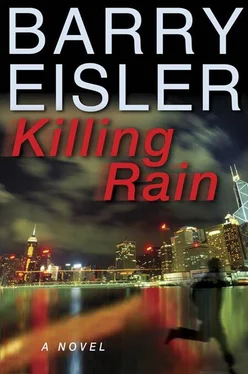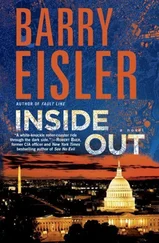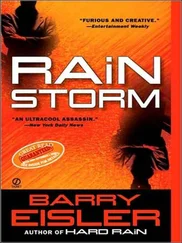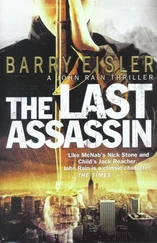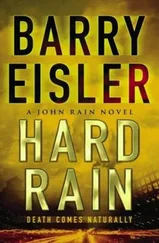I nodded. “No, you don’t, and your people might be having the same problem. You all work for a small, tightly knit organization that operates with little oversight and few constraints. But the CIA isn’t like that. I’ve worked with them on and off for years and I know. They’ve been ripped apart again and again-the Church Commission, the purges under Stansfield Turner, now again with this guy Goss-and they’ve developed a Pavlovian aversion to risk. Should they be recruiting terrorists? Absolutely. But if you’re the guy who does it, if you recruit, run, and God forbid pay someone who has American blood on his hands, and if the paperwork has your name on it, the first time some Congressional committee starts trying to assert its prerogatives, or the first time someone needs a sacrificial lamb, or the first time you make a bureaucratic enemy, you will absolutely be crucified.”
“You’re assuming they were running Lavi. They might have been there to kill him, like you were.”
I shook my head. “That wasn’t it. The way they rushed into that bathroom after Manny hit the panic button, they’d spotted trouble and were on their way to protect him. Trust me, I know the difference.”
“All right, so they weren’t there to harm him.”
“That’s right. You see what I’m getting at? Something’s not right here. Manny’s not like some Second Secretary in the Chinese Consulate that everyone wants to take the credit for. He’s an explosives guy, a terrorist with American blood on his hands. If someone’s running Manny at the CIA, they’re going to treat him like he’s radioactive. They wouldn’t send two officers to meet with him face-to-face. It doesn’t make sense.”
She looked at me. “If they weren’t CIA…”
“Then I don’t have a problem with the CIA. Or at least no more of a problem than usual. Maybe the situation is more fluid than it seems right now. Maybe I can take another crack at Manny.”
“I see your point.”
“Can you find out how your people know what they think they know?”
She glanced to her right, a neurolinguistic sign of construction. She was imagining how she was going to go about this. “I’ll see what I can do,” she said.
“What are you going to tell Gil?” I asked, trying to plug into exactly what she was envisioning.
“That…”
She looked at me, realizing what I’d done and how she had slipped. But the damage was done and she went on. “I’ll call him in the morning. I’ll tell him I’d suggested we go snorkeling at a certain beach at a certain time, and that the suggestion had made you suspicious. That when I woke up you were gone.”
I figured it would be Gil. A killer knows a killer.
“Will he believe that?” I asked.
“He’ll suspect. But it’ll buy us time.”
“Do you trust him?”
She frowned. “He’s very… committed.”
“Yeah, I got that feeling.”
“But he’s a professional. He does what he does for a reason. Take away the reason, and he’ll move on to the next thing that keeps him awake at night.”
I nodded. Her assessment tracked with my own.
She rubbed her eyes. “I need to sleep.”
I leaned over and touched her cheek. I looked in her eyes, wanting to know what I would see there.
Whatever it was, it was good enough. There was nothing more to say. We turned off the light and got under the covers. For a long time I listened to her breathing in the dark. After that I don’t remember.
DELILAH SLEPT DEEPLY for two hours, then woke from jet lag. She lay on her side and watched Rain sleep. God, what a mess.
She had come here convinced that he had screwed up and that there was no other way to solve the problem he had caused except for him to die. That he knew the risks and so in some ways deserved the outcome. But she realized now that all of this had been rationalization, psychic defense against an involvement she dreaded. Seeing him hadn’t clouded her judgment, it had cleared it.
They’d hired him for a job, and he’d done the best he could without a lot to go on. What did they want him to do, slaughter a child? Had it come to that? With Gil, she knew, it had. If she confronted him, Gil would talk about “greater evil and lesser evil” and “collateral damage” and “theirs and ours.” She didn’t buy any of that. She didn’t want to. That Rain was still able to make the moral distinction after so much time in the business-more time than Gil-impressed her. It gave her hope for herself. She wasn’t going to help set him up for acting in a way even Gil, if pressed, would publicly profess was right. Yes, there was a problem, but the director, Boaz, Gil… they had simply proposed the wrong solution. She saw that now. All she had to do was find a better way. She felt confident that she could. If she couldn’t… No, she didn’t want to go there. Not unless she had to.
She was aware, on some level, that she was rationalizing, that her people would view her determination to find a third way as a betrayal. She didn’t care. They weren’t always as smart as they liked to think. And their investment was different than hers. To them, Rain was not much more than a piece on a chessboard. To her, he had become much more than that.
She liked him a lot, more than she had liked someone in a long time. The sex was good-God, better than good-but that was only part of it. She was also… comfortable with him. Until she had spent time with him in Rio, she hadn’t noticed the absence of that kind of comfort in her life. It had disappeared so long ago, and she had been so overwhelmed with so many other things at the time, that it had never occurred to her to mourn its loss.
There had been many affairs, more than she could count. But none of those men, not one, knew what she did. No matter how intense the infatuation, no matter how satisfying the sex, she was always aware that they didn’t, couldn’t, really know her. They couldn’t understand her convictions, sympathize with her doubts, soothe her frustrations, ameliorate the periodic ache in her soul. No wonder she tended to tire of them quickly.
Rain was different. From early on she realized he knew exactly what she did, although she had never spelled it out for him. He seemed to understand her without her ever needing to explain herself. He was patient with her moods. He knew, yes, but he didn’t judge her. More than that, she sensed that he even admired her beliefs, the personal sacrifices she made for the cause that defined her. She had identified the absence of, and the longing for, a cause of his own as one of the key attributes of his persona, and remembered, with a slight pang of conscience, how she had reported on this to her people as something potentially exploitable.
There was comfort, too, in context: there was no uncertainty about their status, no foolish hopes about where this might be leading. There could be no hurt or recriminations about why someone hadn’t called or had to break an engagement. Even their different affiliations, and the potential conflicts of interest those affiliations might present, as indeed they had, were understood. In French they would call it sympa , simpatico. In English, the banal but perhaps more descriptive “same sheet of music.” In its quiet way, it was really quite wonderful.
All of this mattered to her, but there was something more important, more improbable, still: she knew he trusted her. Of course he never abandoned his tactics, she wouldn’t expect that. His moves were as subtle as she’d ever seen, and usually disguised as ordinary behavior, but she knew what he was doing. Meeting her at the gate in Bangkok and taking her to the domestic terminal by taxi had been a particularly nice, albeit undisguised, way to play it. If Gil or anyone else had been with her, the game would have been over right there. She suspected that there were other layers, possibly involving electronics, in his countermeasures, layers she hadn’t detected. And she was aware from time to time that his “innocent” questions involved hidden meanings and traps. But all of this was reflex for him, habit. She sensed the tactics were his way of reassuring himself that he hadn’t gone soft, that he was still protected, that he wouldn’t be so foolish as to trust someone like her.
Читать дальше
